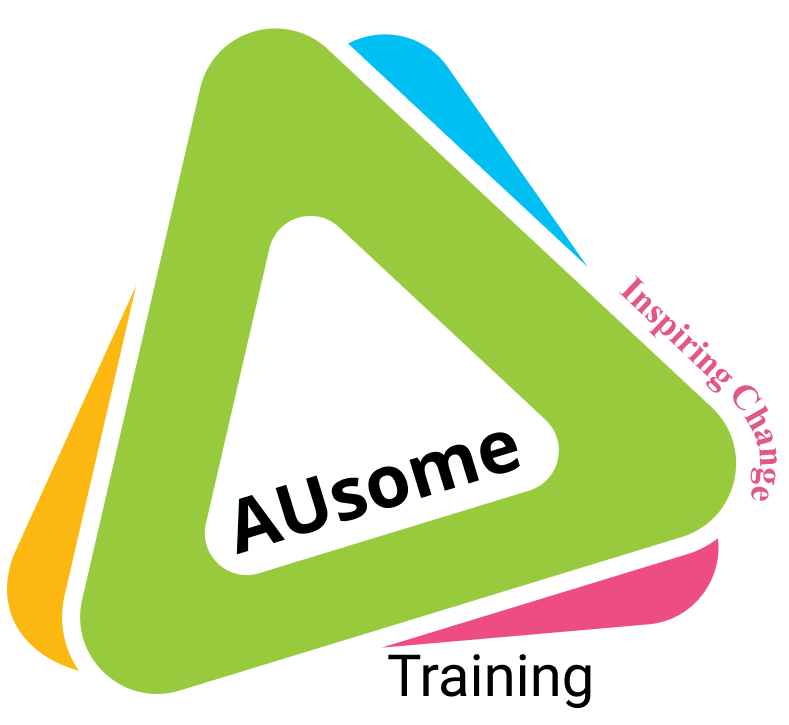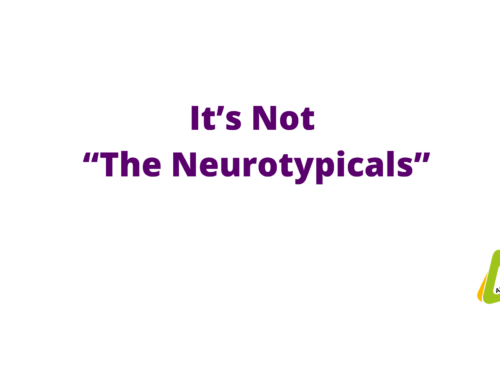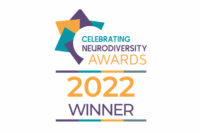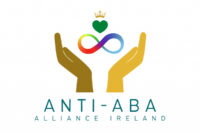What do the professionals and charities say about social deficits in autism? A quick google search will throw up lists of all the social deficits Autistic kids and adults supposedly display. Many of these lists and descriptions fail to take Double Empathy into account. Double Empathy is a theory by Autistic psychologist Damian Milton. This theory say basically that Autistic people may have difficulty reading non-autistic people but in the same way non-autistic people also have these difficulties reading Autistic people. Yet we don’t say that non-autistic people have deficits in social skills. When we have different communication styles then miscommunications can arise. But the fault doesn’t lie on one side of the exchange. The difficulties arise in the space between the two communicators and so we can work together to bridge these gaps in understanding.
Here’s just a sample of our perceived shortcomings:
Autistics don’t get jokes. Obviously they’ve never seen a group of Autistic kids or adults interact and laugh our heads off. Perhaps those around us have a deficit in being funny?
Inability to read social cues. But who’s social cues? Non-autistic social cues. And guess what non-autistics exhibit the same social deficits in reading our social cues.
Inability to read body language. Who’s body lauguage? Non-autistic body language. And yes you’ve guessed it… non-autistics also have difficulty reading ours.
Autistics have difficulty taking turns. Really? How long has the conversation around autism been controlled by professionals? And how willing are they to step back and give Autistic people a turn? Are professionals displaying social deficits in turn-taking?
Autistic kids can’t share their toys. I’ve already explained in a recent article that if we are engrossed in play and learning that giving away a part of our experiment is obviously going to be distressing. But also lots of kids don’t like parting with a toy that they’re playing with. It’s a kid thing more than an Autistic thing. Autistic kids are trained to hand over their toys on command. When they follow commands they simultaneously learn that their rights do not matter. This sort of training sets us up for a lifetime of people pleasing. Why the focus on Autistic kids sharing? Who knows. It would make sense to me if we lived in a world that shares. But let’s face it, we walk over people sleeping on the street, eat our fill while others starve and display social deficits in sharing in nearly every aspect of our society.
Autistics can’t read emotions in others. How good are professionals at recognising Autistic displays of emotions? Pretty poor unfortunately. Most interventions are based on this idea and Autistic kids are trained to express emotions in a way that non-autistics can recognise. How much effort has gone into understanding how Autistic kids and adults feel? The answer unfortunately is very little.
Autistic kids have difficulty fitting in. How can you fit into a group if the group doesn’t allow you in, others you or treats you a different?
Autistics have difficulties making friends. Making friends and maintaining relationships is a big difficulty for many of us. But why? Isn’t friendship a two way thing and isn’t the responsibility for maintaining a relationship a joint task? Why is all the blame placed on the Autistic person.
Are there really social deficits in autism? The short answer is no. Autistics exhibit the very same “social deficits” that any of us would when we encounter a culture which is different to ours. We have our own language and culture so of course non-autistic language and culture is not going to come naturally to us. Just in the same way that Autistic language and culture won’t come naturally to non-autistics. This is why we focus on bridging that gap at AUsome Training. Our training sessions explore the differences in our communication and offer ways to meet each other half way.




